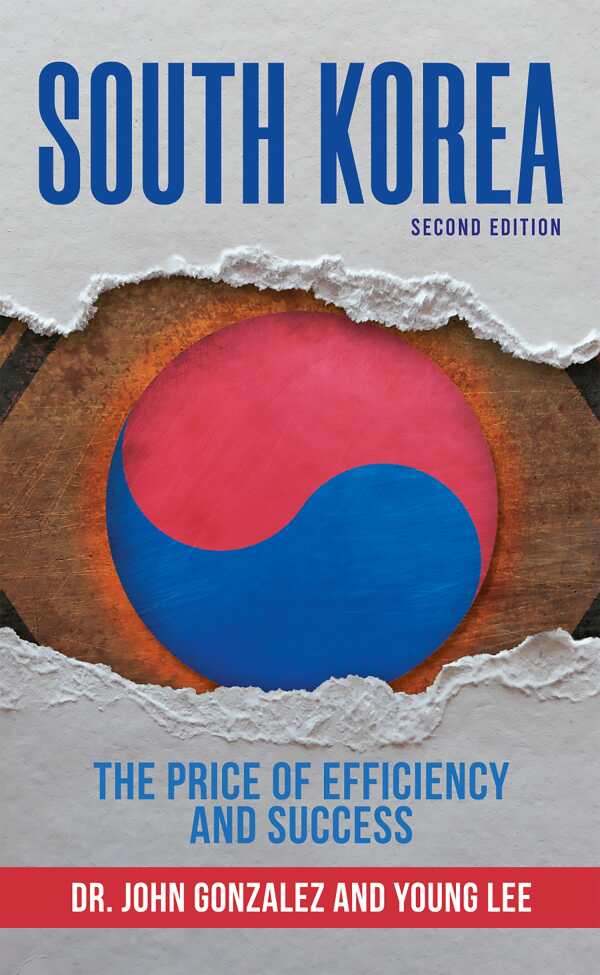South Korea
The Price of Efficiency and Success: Second Edition
The political science text South Korea makes a moral case for “consciousness raising” and cultural transformation that has clear relevance to other industrialized nations.
John Gonzalez and Young Lee’s cautious political science text South Korea addresses the underbelly of South Korea’s remarkable economic and cultural successes.
Taking aim at the dehumanizing side effects of a cultural environment that prioritizes efficiency above other values, this text critiques one of the world’s most technologically advanced nations in a coherent if uneven manner. Gonzalez, an American educator who’s lived and worked in South Korea, mixes his own observations with recent scholarship and Korean journalism to present a portrait of a culture in crisis.
This analysis begins by highlighting the story of the Miracle on the Han River in the 1950s—an unprecedented rebuilding campaign that South Korea experienced after the Korean War. The new prosperity required a high degree of national sacrifice and a new propensity toward pali pali (“hurrying”). The book argues that this mindset persists in South Korean society in the present.
This premium on efficiency is credited with South Korea’s world-class achievements in technology, but the book argues that it also comes with an intolerable “human toll.” Focusing on the stresses of South Korea’s arduous education system and a string of fatal industrial accidents and connecting them back to a cultural environment that often champions speed and efficiency at the expense of safety, the book makes a moral case for “consciousness raising” and cultural transformation that also has clear relevance to other industrialized nations.
The chapters on South Korea’s education system are the highlights of this investigation. They include personal observations on student behavior, differences in teaching styles, and the nation’s often exhausting systems of hagwons (after-school academies) and private tutors. The text is adept at switching between individual anecdotes and commentary on macro-level trends: after focusing on the smaller-scale psychological impacts of South Korea’s educational standards, it traces their long-term impacts, arguing that the country’s exceptional percentage of college graduates led to an economic glut and an overstrained labor market. The book’s regular incorporation of testimonials from students and struggling graduates also adds a substantial element of pathos to the narrative.
But while the book draws a convincing connection between South Korea’s unique culture of high expectations and its high rate of mental health issues among young people, its attempt to draw a similar connection with recent industrial accidents is less convincing. The specific problems that the book identifies (including South Korean industries’ lax safety codes and reliance on overworked temporary employees) are also significant problems across other industrialized nations, and the book does not tie these issues to South Korea specifically. Thus, some of its criticisms are unbalanced in scope.
South Korea is a broad and thoughtful work of cultural comparison and critique that will stimulate debate on global issues.
Reviewed by
Isaac Randel
Disclosure: This article is not an endorsement, but a review. The publisher of this book provided free copies of the book and paid a small fee to have their book reviewed by a professional reviewer. Foreword Reviews and Clarion Reviews make no guarantee that the publisher will receive a positive review. Foreword Magazine, Inc. is disclosing this in accordance with the Federal Trade Commission’s 16 CFR, Part 255.

